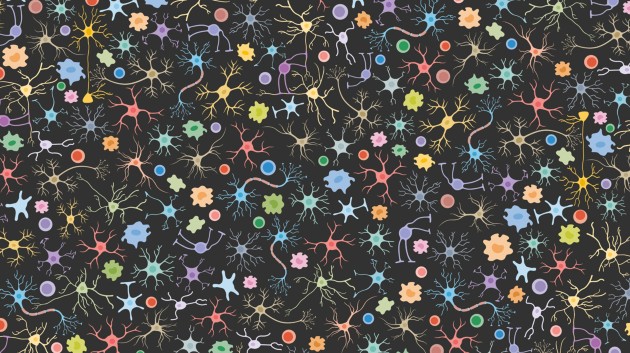Focus |
Collections
Filters
-
Collection Type
-
-
Focus |
10th anniversary
In November 2015, Nature Reviews Neurology(originally published asNature Clinical Practice Neurology) celebrates 10 years since the launch of the journal. To mark this occasion, we present an anniversary issue containing specially commissioned articles that highlight progress in neurology over the past decade and outline the research priorities for the next 10 years. A special infographic provides a snapshot of 10 years of the journal in numbers.
-
Focus |
Epilepsy
Treatment-resistant epilepsy remains a major burden at both global and individual levels. About 1% of individuals have epilepsy and, in over one-quarter of patients, antiseizure medications do not provide sufficient seizure control, which can result in dramatically impaired quality of life and increased mortality. In this special focus issue on epilepsy, cutting-edge investigators from around the world highlight the important challenges and progress in epilepsy research and clinical practice. The topics in this issue include global challenges in paediatric epilepsy, the genetic background of the epilepsies and its implications for genetic diagnosis and personalized medicine, prospects for gene therapy in epilepsy, brain stimulation in refractory epilepsy, and mechanisms of sudden unexpected death in epilepsy.
-
Focus |
Traumatic brain injury
Traumatic brain injury (TBI) is a major cause of lifelong disability and death worldwide, but is considered a 'silent epidemic' as society is largely unaware of the magnitude of the problem. Repetitive brain injuries can cause a neurodegenerative disorder termed chronic traumatic encephalopathy (CTE), as has been highly publicized in recent years in cases of retired participants of high-impact sports such as boxing and American football. In this special Focus Issue, experts in TBI and CTE review the causes, pathology, consequences and epidemiology of brain injury, as well as highlighting advances in prevention, detection and monitoring of TBI.
-
Focus |
Disease mechanisms in MS
Multiple sclerosis (MS) is an inflammatory, demyelinating neurological disease that causes severe disability. Current treatments are only partially effective, and No. cure is available. This issue of the journal focuses on disease mechanisms that operate in different phases in MS—including initiation, exacerbation, remyelination and functional recovery, and progression—placing the latest findings in a clinical context, including implications for therapy.
-
Focus |
Amyotrophic lateral sclerosis
Amyotrophic lateral sclerosis (ALS) is a neurodegenerative motor neuron disease that presents substantial diagnostic and therapeutic challenges. In this focus issue, experts highlight recent progress in understanding the genetic and molecular underpinnings of ALS, including the discovery of biomarkers for rapid diagnosis of the condition and monitoring of disease progression. Current and future treatment and management approaches are also addressed, along with prospects for improving the design of clinical trials in ALS.
-
Focus |
Neuroinformatics
The field of neuroinformatics was originally conceived as the application of information technology to the compilation, integration and analysis of large data sets in basic neuroscience research. In this special issue, we explore how the principles of neuroinformatics are now being extended to the neurology clinic, highlighting initiatives in three diverse areas: glioma genomics, neurocritical care, and brain imaging in neurodegenerative disease.
-
Focus |
Dementia
With the growth of the aged population, the socioeconomic costs of dementia are set to rise sharply. No. disease-modifying drugs currently exist for the main cause of dementia, namely Alzheimer disease. The successful development of such drugs, and disease-modifying therapies for other causes of dementia, will require the ability to make an early diagnosis of the disease and a means to monitor the progression of pathology in vivo, in addition to novel agents. In this Focus issue, leading experts examine pharmacological strategies that are being explored to combat Alzheimer disease and biomarkers that are being developed for this disorder and other causes of dementia.

 Neuroinflammation
Neuroinflammation